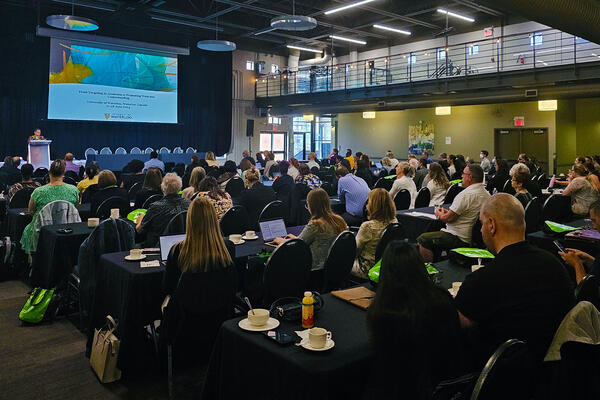
Intimate partners with low self-esteem stay in unhappy relationships
People with low self-esteem are more likely to stay in unhappy relationships, suggests new research from the University of Waterloo

People with low self-esteem are more likely to stay in unhappy relationships, suggests new research from the University of Waterloo
By Media RelationsSufferers of low self-esteem tend not to voice relationship complaints with their partner because they fear rejection.
“There is a perception that people with low self-esteem tend to be more negative and complain a lot more,” says Megan McCarthy the study’s author and a PhD candidate in the Department of Psychology. “While that may be the case in some social situations, our study suggests that in romantic relationships, the partner with low self-esteem resists addressing problems.”
The study is important for understanding how intimate partner communication can help improve the love lives of people around the world.
“If your significant other is not engaging in open and honest conversation about the relationship,” says McCarthy, “it may not be that they don't care, but rather that they feel insecure and are afraid of being hurt.”
In her research focused on intimate partner communication, McCarthy tests the impact on a relationship when one partner suffers from low self-esteem. “We’ve found that people with a more negative self-concept often have doubts and anxieties about the extent to which other people care about them,” she says. “This can drive low self-esteem people toward defensive, self-protective behaviour, such as avoiding confrontation.”
The study was presented this week in California at The Society for Personality and Social Psychology’s 16th Annual Meeting.
The research suggests that people with low self-esteem’s resistance to address concerns may stem from a fear of negative outcomes. Sufferers may believe that they cannot speak up without risking rejection from their partner and damage to their relationship, resulting in greater overall dissatisfaction in the relationship.
“We may think that staying quiet, in a ‘forgive and forget’ kind of way, is constructive, and certainly it can be when we feel minor annoyances,” says McCarthy. “But when we have a serious issue in a relationship, failing to address those issues directly can actually be destructive.”
McCarthy, along with her research colleagues, have plans for a second study that will look at how increasing a low-self-esteem partner’s sense of power or influence in a relationship can promote more open disclosure.
“We all know that close relationships can sometimes be difficult,” says McCarthy. “The key issue, then, is how we choose to deal with it when we feel dissatisfied with a partner.”

Read more
One year after Hagey Hall attack, Waterloo hosted an international conference to explore ways of promoting trust and understanding in academia

Read more
Unique map of Haldimand Tract sparks conversations about culture, history, and the Grand River watershed

Read more
Meet the 13 exceptional students representing Waterloo’s newest grads
The University of Waterloo acknowledges that much of our work takes place on the traditional territory of the Neutral, Anishinaabeg, and Haudenosaunee peoples. Our main campus is situated on the Haldimand Tract, the land granted to the Six Nations that includes six miles on each side of the Grand River. Our active work toward reconciliation takes place across our campuses through research, learning, teaching, and community building, and is co-ordinated within the Office of Indigenous Relations.